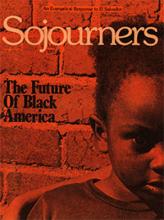For black people in the United States, the recent shift in the alignment of political forces will be of major consequence. Given our nearly overwhelming commitment in the past half century to the Democratic party, especially to its "liberal" wing, the return to power of the "conservative" Republicans will lead to immediate consequences of significant impact for many of us in vital areas of our lives.
Since the decade of the 1930s, following the Great Depression, the United States' political, economic, and social history has been dominated by "liberals" whose actions were guided by a complex of ideas and ideals which championed governmental intervention, especially at the federal level, in virtually all areas of life, in order to achieve concrete historical objectives: a more stable economic order; better working conditions for workers; justice for racially and ethnically oppressed peoples; an economic floor of opportunity and the resulting benefits in education and work; better living conditions for those most in need; improved health care and living conditions for the elderly. On the other hand, during this same period there were those--the "conservatives"--who worked intensely to prevent or limit the realization of each of these objectives.
People of African descent in the U.S. (i.e. black Americans) are intimately familiar with this history, for it has been, in many respects, a "second Reconstruction" for us. Moreover, it is well understood that the "reconstruc tion" would not have taken place were it not for the fact that more liberal forces held power. These were open to the arguments for redress being advanced by blacks, or by others in our behalf. Furthermore, these forces could be moved by organized struggles.
Read the Full Article

